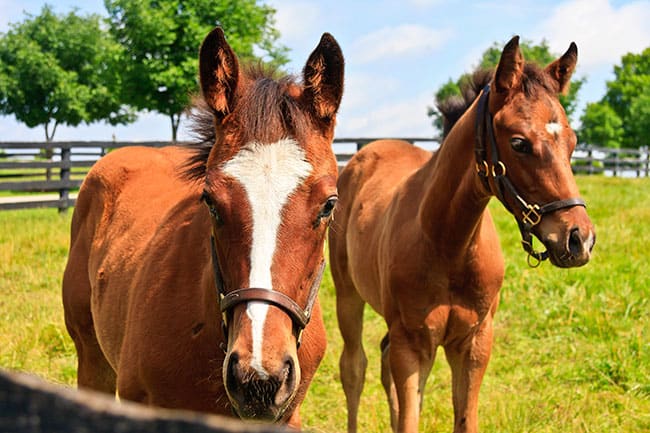A Quick Guide to Micronutrients for Horses

Learn how these vitamins and minerals affect nearly every physiological function in the horse’s body
Micro: a prefix originating from the Greek letter “µ,” meaning small. Though they make up only a tiny part of horses’ diets, micronutrients play big roles in major physiological functions, ranging from bone and muscle performance to digestion to hormone signaling. Let’s dive into the world of micronutrients to learn more.
Minerals
By definition, minerals constitute any naturally occurring, pure inorganic (meaning without carbon) substance. Remember that periodic table from chemistry class? On it you will find a collection of minerals that are present on earth. After countless hours of research, nutritionists determined the proportion of these minerals necessary to sustain equine life.
Minerals required in the equine diet fall into two categories: macrominerals and microminerals. What makes a mineral macro or micro? The amount a horse requires daily. If you glance at the National Research Council’s Nutrient Requirements of Horses (2007), you’ll find macromineral requirements listed as grams per day and microminerals as milligrams per day
Create a free account with TheHorse.com to view this content.
TheHorse.com is home to thousands of free articles about horse health care. In order to access some of our exclusive free content, you must be signed into TheHorse.com.
Start your free account today!
Already have an account?
and continue reading.
Written by:
Kristen M. Janicki, MS, PAS
Related Articles
Stay on top of the most recent Horse Health news with















